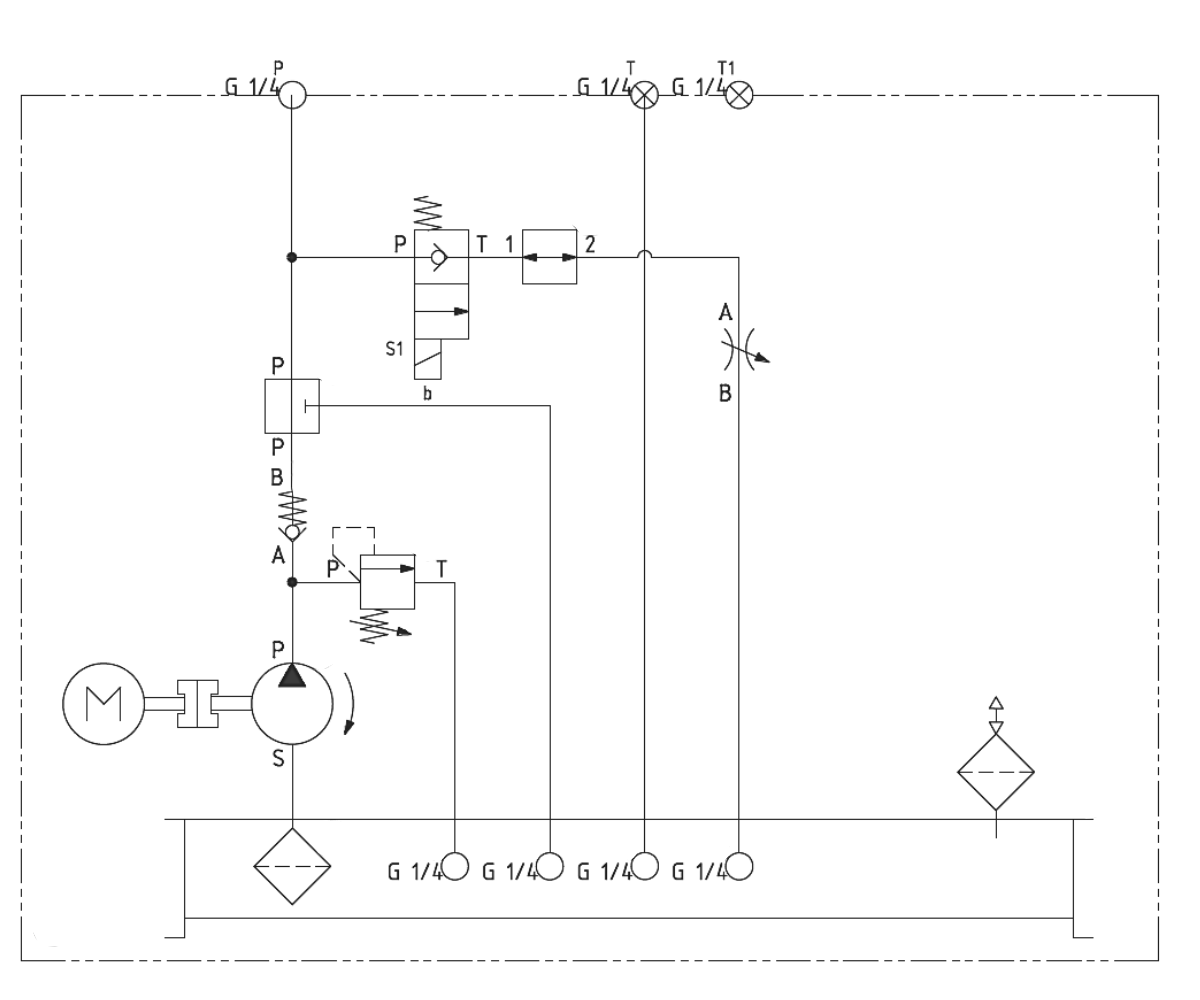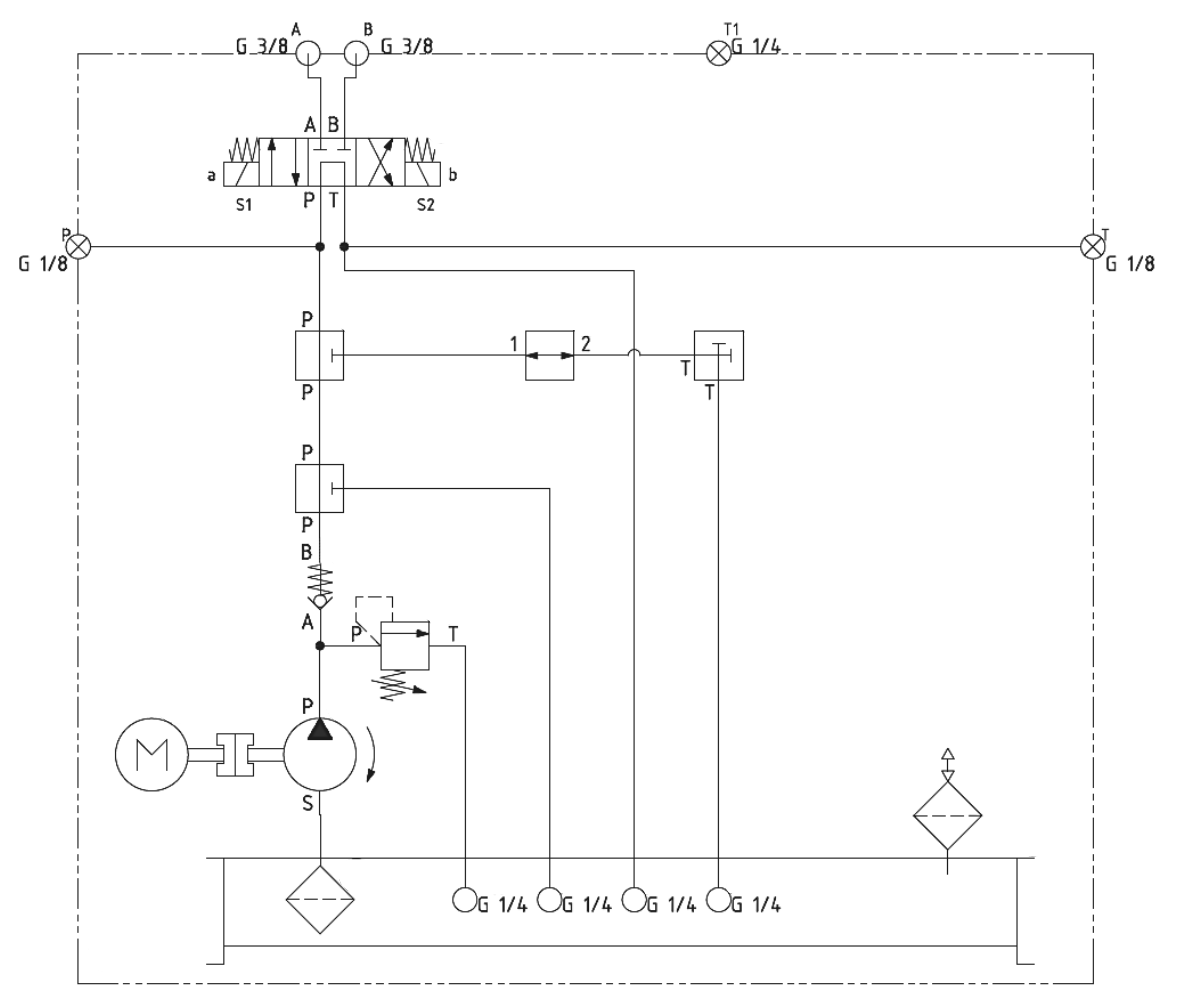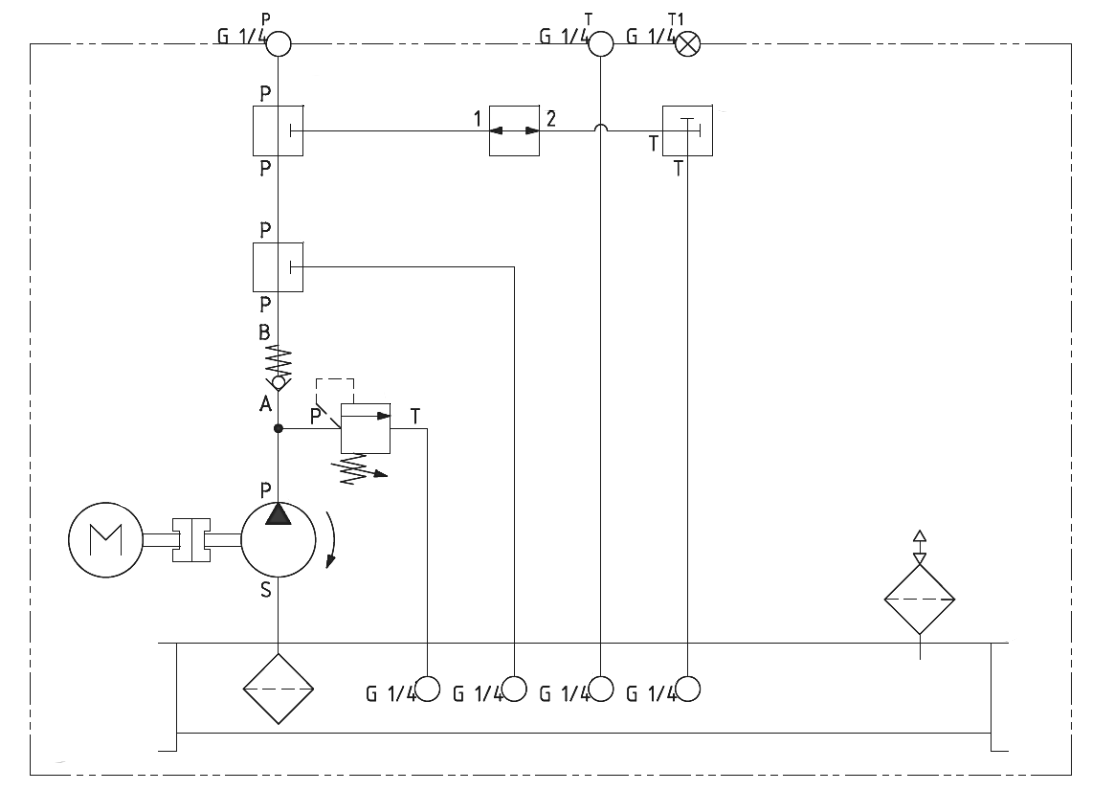Is the system single-acting, double-acting, or a pressure and return (P+T)?
To determine whether a hydraulic system is single-acting, double-acting, or a pressure and return (P+T) type, you can consider the following definitions and characteristics:
Single-Acting System:
In a single-acting system, hydraulic pressure is applied to move the actuator (like a cylinder) in one direction. The return stroke is usually powered by a spring or gravity. The return movement of the actuator, such as a hydraulic cylinder, is typically powered by an external force like a spring, gravity, or load rather than hydraulic pressure.
Common Applications:
- Hydraulic jacks: Used to lift heavy loads in one direction.
- Log splitters: The piston pushes the log, but retracts using gravity or a spring.
- Lifting mechanisms: Where only upward or downward movement is powered.
Example of a single acting circuit

Double-Acting System:
A double-acting system uses hydraulic pressure to move the actuator in both directions. It has ports on both sides of the cylinder, allowing fluid to enter and exit, which facilitates both the extension and retraction of the piston. This type is commonly used in applications where controlled movement in both directions is required, such as in hydraulic cylinders used in construction equipment. It is more versatile than a single-acting system because both extension and retraction of the piston or actuator are powered by hydraulic pressure.
Common Applications:
- Hydraulic presses: For pressing in both directions.
- Cranes and lifting equipment: For controlling both lifting and lowering motions.
- Excavators and machinery: Used in applications where force in both directions is needed.
- Hydraulic steering: Used in vehicles for controlled steering movements in both directions.
Example of a double acting circuit

Pressure and Return (P+T) System
A pressure and return (P+T) system refers to hydraulic circuits where a separate return line is used alongside the pressure line. This setup allows for better control and efficiency in the hydraulic system, enabling simultaneous operation and quicker recovery times. This system would allow the use of pre-existing valves, reducing cost.
Two Main Lines:
- P (Pressure): The line where the hydraulic fluid is under high pressure, used to power or control the movement of an actuator.
- T (Tank/Return): The line where used hydraulic fluid flows back to the tank at low pressure for recirculation.
Common Applications:
- Log Splitters: A typical example of single-acting cylinders using a P+T system.
- Hydraulic jacks: Where lifting is done by hydraulic pressure and gravity or a spring is used for retraction.
Example of a pressure and tank circuit

How to Identify:
- Check the System Components: Look at the configuration of the hydraulic cylinders and hoses.
- Observe Functionality: Monitor how the system operates. Does it require a manual return, or can it move in both directions automatically?
- Consult Documentation: Review technical specifications or manuals associated with the system to identify its design type.
Flowfit's Exceptional Hydraulic System Components and Accessories
Flowfit is committed to offering top-quality hydraulic system components and accessories that stand out in the market. If you're having trouble identifying your requirements or need help finding a particular product, our Technical Sales team is here to help. With extensive experience, our team can provide expert advice on the best products available.
Contact us today to speak with one of our hydraulic specialists and explore your options.
The total one-stop supplier for hydraulic components & systems
Get in touch
Parys Road
Ludlow
Shropshire
SY8 1XY








